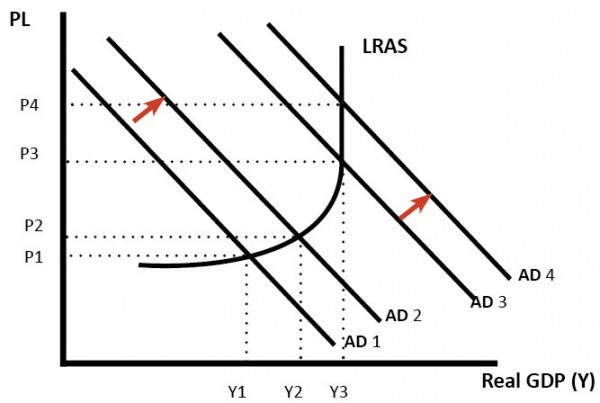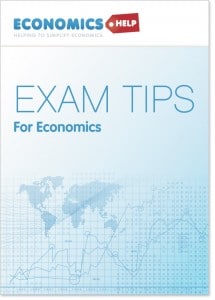At this time of the year, my students are preparing for their exams with a mixture of trepidation, confidence, resignation, hope or fear. The best way to prepare is to simply do one thing at a time. Concentrate on making small improvements and importantly keep practising past papers.
Students who just do a bit of reading will never be properly prepared. The most important aspect of revision is to make it active. Force yourself to keep thinking and understanding what you have been studying. When you explain things to others, you learn yourself. My students often complain that I always seem to ask them what they don’t know. But, this is on purpose. If you can be aware of what you don’t know, it’s a great incentive to learn. A problem students can have revising on their own is that, unconsciously, they can revise what they are good at and already know. This is why I’m not a big fan of long periods of ‘exam leave’. It’s better to have someone picking out things you might not know.
How To Revise
- Make simple targets for getting through the material. Don’t spend hours on revision timetables which are overly optimistic. But, do have a clear plan what subjects need doing as you go through the exam period.
- Start off by knowing the syllabus and likely questions.
- Test Yourself Frequently. The key to learning is active engagement in the material. If you read a textbook, you will think – yes I understand that. But, the real test is to close all books and just put a question on a blank sheet of paper. Write what you can, but then go back and check.
- Do a certain amount of written work. This is the best test to make sure you are on the right track.
- Don’t count the number of hours sitting at a desk, but count papers written or topics where you have improved your learning.
Past Papers
An invaluable source of exam preparation. Some exam boards are not very innovative in thinking of new questions. From reading past exam papers, you can have a good idea what will come up in June.
FAQ on Exams
“I’ve so much to do, and it’s really difficult to get the A+ required.”
- At this time of the year, it can feel overwhelming the amount of work you need to do. A lot seems to rest on June exams. If you really focus on all the difficulty of getting the grades required, it can put students off working completely!
- The important thing is not to focus too much on June and the likelihood or not of passing. If you have a mountain of work, start somewhere. Set small realistic goals on some aspects you can benefit from. All these small goals will add up.
- If you can spend one hour in productive work, you will find your confidence improves. After that hour, you can have another hour. If you just sit around fretting, you will just become worried and feel it is too much.
“I Know the material, but I don’t know what to include in questions.”
- Always answer the question. At the end of the paragraph, always make sure you summarise how the previous paragraph answers the question directly. e.g. ‘because of cheaper exports, a devaluation may increase employment in export industries.
- Practice is key. Do past papers and learn from what your teacher states.
- Have a look at some model essays A2 essays | AS essays – these will give an idea
- Consider which topics from the syllabus are relevant. Questions often require a wider knowledge. e.g. Discuss the impact of devaluation on UK economy. It is helpful to have a clear knowledge of main macroeconomic objectives
- Economic growth
- Inflation
- current account, balance of payments
- unemployment
- Government borrowing.
Any answer on the impact on UK economy should be considering how a devaluation effects all these different objectives. This gives a certain structure to your answer and gives more topics to answer. Sometimes just knowing key topics in syllabus helps.
Key Exam Techniques
- Knowledge. You can’t get far without basic knowledge, definitions and understanding. Repeatedly test until you have confidence and don’t have to guess.
- Diagrams. Make sure you can add all the relevant diagrams. There isn’t a huge amount, for example, in macroeconomics, good use of AD/AS diagrams is key factors.
- List of microeconomics with diagrams
Evaluation. This is a key factor in getting a top grade. It is the ability to look at an answer from a critical distance.
This is just a very short summary of evaluation for more detail, see: evaluation for economics
Macroeconomic evaluation

- Depends on elasticity of AS, e.g. classical view of LRAS vs Keynesian view
- Look at alternative theories – classical vs Keynesian
- Time Lags
- Depends on the scale and magnitude of the factor, e.g. housing prices have big effect on AD
- Depends on other factors in the economy, e.g. cut in interest rates may not work, if global recession
Microeconomic evaluation
- Depends on objectives of firms, e.g. profit maximising vs gaining market share
- Depends on the elasticity of demand/supply (Always think of elasticity in economics!)
- Depends on the industry, e.g. economies of scale more prevalent in oil production, than retail.
- Time Lags. Short term, supply inelastic, in long-term supply tends to be more elastic.
- See more notes on evaluation for economics
Related Guides
- Exam and Study Tips – £5.00


The note that my teacher use to give the whole student is very long and plenty and i dont know where to start from or how will i start reading them. Am really confused about it and the exam is this thursday please i need your help. I really dont want to fail my exam please i really need your help